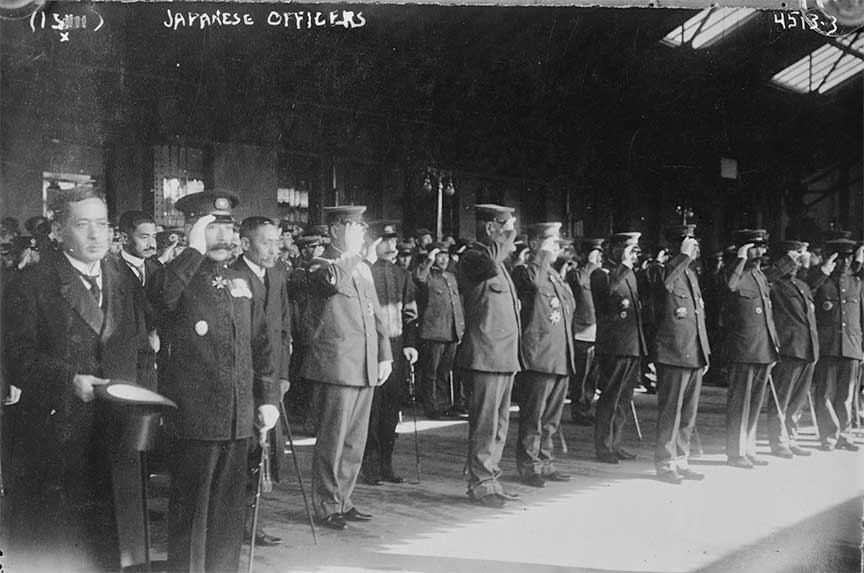1914 Japan Declares War on Germany
On August 15th 1914 , Japan issued Germany an ultimatum demanding that the German fleet be withdrawn from the Far East and that Kiaochow be surrendered within the week. When no answer was forthcoming, it declared war on Germany..
Japan declared war on Germany in 1914, not because of direct animosity towards Germany, but rather as a result of its alliance with Great Britain.
In 1902, Japan and Britain signed the Anglo-Japanese Alliance, which was primarily aimed at countering Russian expansion in Asia. According to the terms of the alliance, if either Japan or Britain were at war with two or more great powers, the other party would provide military support. When World War I began in 1914, Britain found itself at war with both Germany and Austria-Hungary, thus activating the terms of the alliance and prompting Japan to enter the conflict on the side of the Allies.
Japan's primary goal in entering the war was to seize Germany's colonies and territories in the Pacific and China, such as the Kiautschou Bay concession in China and various islands in the Pacific. By doing so, Japan aimed to strengthen its strategic position in the region and expand its sphere of influence.
Japan presented an ultimatum to Germany. On August 15, 1914, the Japanese government sent a message to Germany with a set of demands related to Germany's territories in the Asia-Pacific region. The ultimatum included the following demands:
- The German government must withdraw its warships from Japanese and Chinese waters and disarm the warships in the leased territory of Kiautschou Bay.
- Germany must transfer control of the Kiautschou Bay concession, including the city of Tsingtao, to Japan by September 15, 1914.
Japan's ultimatum was clear: either Germany would comply with these demands or face military action. The German government refused to comply, and as a result, Japan declared war on Germany on August 23, 1914. The Japanese military, in cooperation with British forces, then launched a successful attack on German-held Tsingtao, which marked the beginning of Japan's involvement in World War I.
 >
>